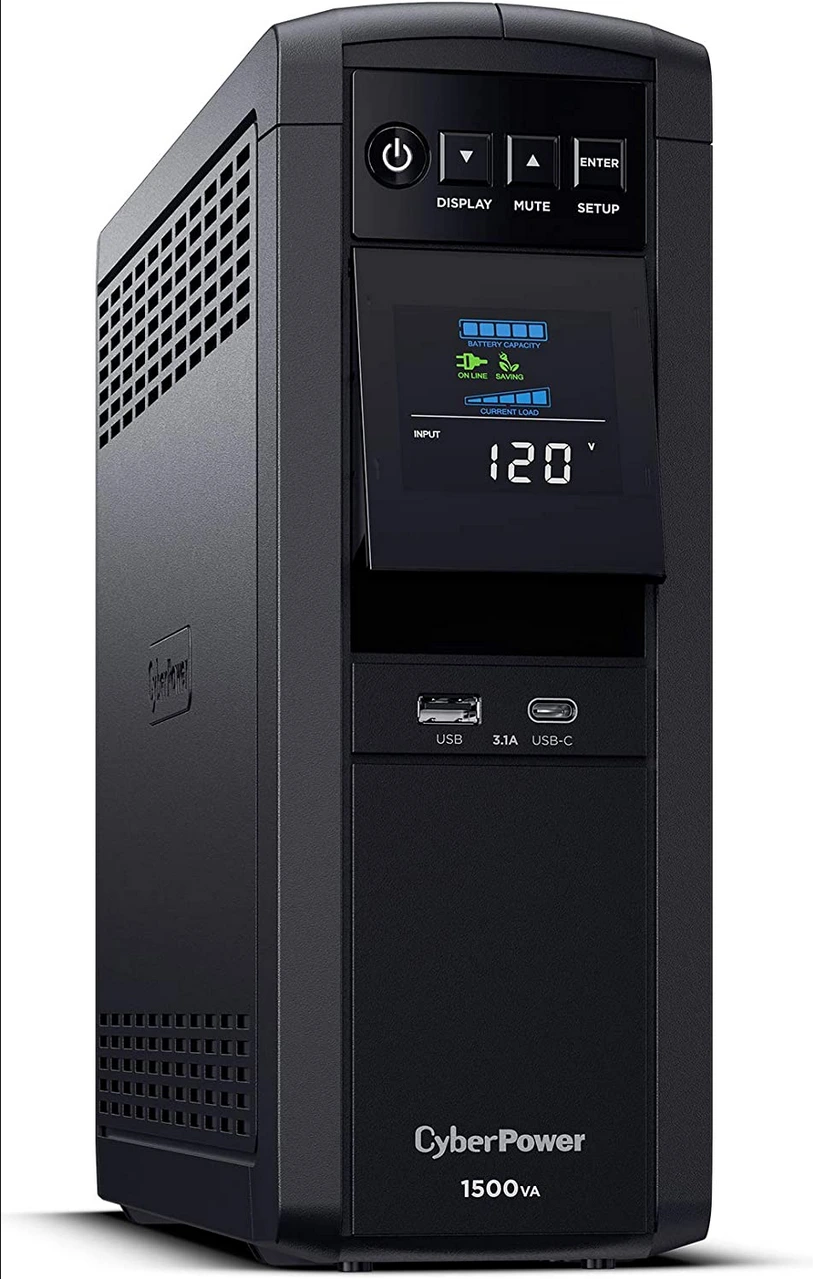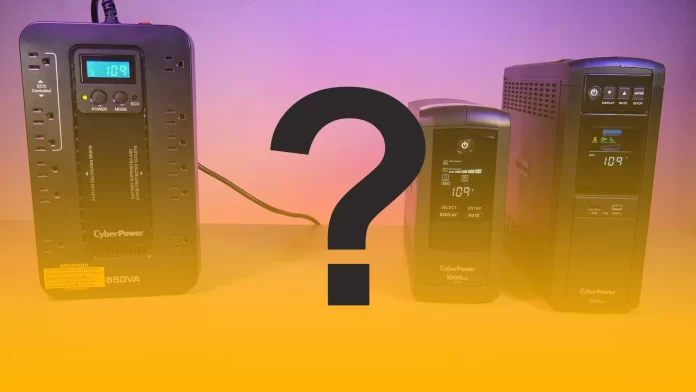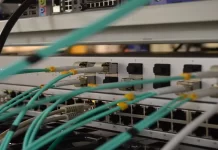Sudden loss of power and power surges are two of the main causes of damage to computers and other sensitive electronics. Even cheap surge protectors can protect against power surges, but they don’t protect against mains voltage drops, power outages, blackouts, and other power problems.
In many regions, power outages are a thing of the past. So many people don’t even know how a UPS works. And is it needed at all in modern conditions, because most programs automatically save data? Let’s try to find out.
What is UPS and how does it work with PC?
An Uninterruptible Power Supply, or UPS, is a device that allows your equipment to run on battery power for a certain amount of time. Thus, in the event of a power outage or out of the normal range, the UPS will output power that is fully compliant with all standards, helping to avoid boiler breakdown and other unpleasant consequences of power problems.

An easy way to understand how a UPS works is to think about working on a laptop. You’re at home, your laptop is connected to the proper surge protection, and you’re doing some reports for work. A summer storm knocks out the power. Even though the lights are out, your work on your laptop isn’t interrupted because the laptop switched completely to battery power when the power flow from the power cord disappeared. You have plenty of time to save your work and shut down your computer properly.
However, PCs don’t have built-in batteries as laptops do. If you work on your desktop during a power outage, the system will shut down immediately. Not only will you lose your work, but this process puts unnecessary stress on your machine. The vast majority of hardware failures with PCs can be directly attributed to the effects of voltage fluctuations during the shutdown and startup process.
The UPS unit, at a minimum, even with a very small battery, will provide you with enough time to properly shut down or go into hibernation mode. If the power of the UPS is sufficient, you can even continue to work. You don’t have to sit in front of your PC, many UPS units come with software that can detect a power outage and automatically shut down (correctly) your PC.
Do you need a UPS at all?
Modern power supplies are equipped with many protections – against overload, overheating, low and high voltage, and short circuits. So is a UPS needed in urban areas where power outages are very rare? After all, the PC power supply itself will protect against interference in the network.
If the supply voltage is not correct, the power supply will simply shut down. What’s the worst that can happen?
- Recent changes to open documents won’t be saved. In most office apps, graphics and video editors, development tools, and other working programs, you can set to auto-save open documents every minute. So you’ll lose most of those changes that were made just now. And online documents are saved even more often. It seems to be no big deal. But if a power outage occurs at the moment when the file was being saved, a failure may occur. Then, in the worst case, you will lose the document completely.
- If a system update was in progress when the power was turned off, the PC may refuse to boot. Modern operating systems make it fairly easy and fast to restore system integrity, but some updates and recently installed apps can be “lost”.
- In some cases, the problem may be more serious. If it so happened that the power is turned off during the BIOS update of the motherboard or video card, you can not restore the PC on your own, you will have to take it to the service center.
So there are reasons to buy a UPS, even if you don’t experience power outages very often. And even if you live in the countryside and the power goes out frequently, a UPS can be indispensable.
What are the three main types of UPS?
There are three basic types of UPS. The least expensive is known as a standalone/standby UPS. If no device type is specified for the UPS, it is probably a standby UPS.
The UPS Standby unit (Off-Line or Standby) charges the battery and then simply transfers power from the mains. When a power outage occurs, the Standby UPS automatically switches to the backup battery. This transition takes about 20-100 milliseconds, which is usually within the acceptable threshold of most electronics.
The Line-Interactive UPS has a similar design to the Standby UPS but includes a special transformer. This special transformer makes it much easier for the Line-Interactive UPS to handle outages and power dips. If you live in an area with frequent power outages or problems (e.g., your lights dim frequently, but you don’t lose power), it’s worth spending a little more to buy a Line-Interactive UPS.
Online UPS is the most expensive type of uninterruptible power supply because it requires additional circuitry. The Online UPS completely isolates the devices connected to it from the mains. Instead of switching to a battery, the OnLine UPS continuously filters the main power through the battery system.
Because the connected electronics are powered entirely by the battery (which is constantly fed by an external power source), there is never a millisecond of power interruption when power loss or voltage problems occur. In this way, the Online UPS is an effective electronic firewall between your devices and the outside world, cleaning and stabilizing all electricity.
Modern power supplies provide ample protection for your PC’s hardware, and autosave settings can help save open documents in the event of a sudden power surge. So if you don’t work with valuable data, and power outages are rare, you can get by without a UPS.





